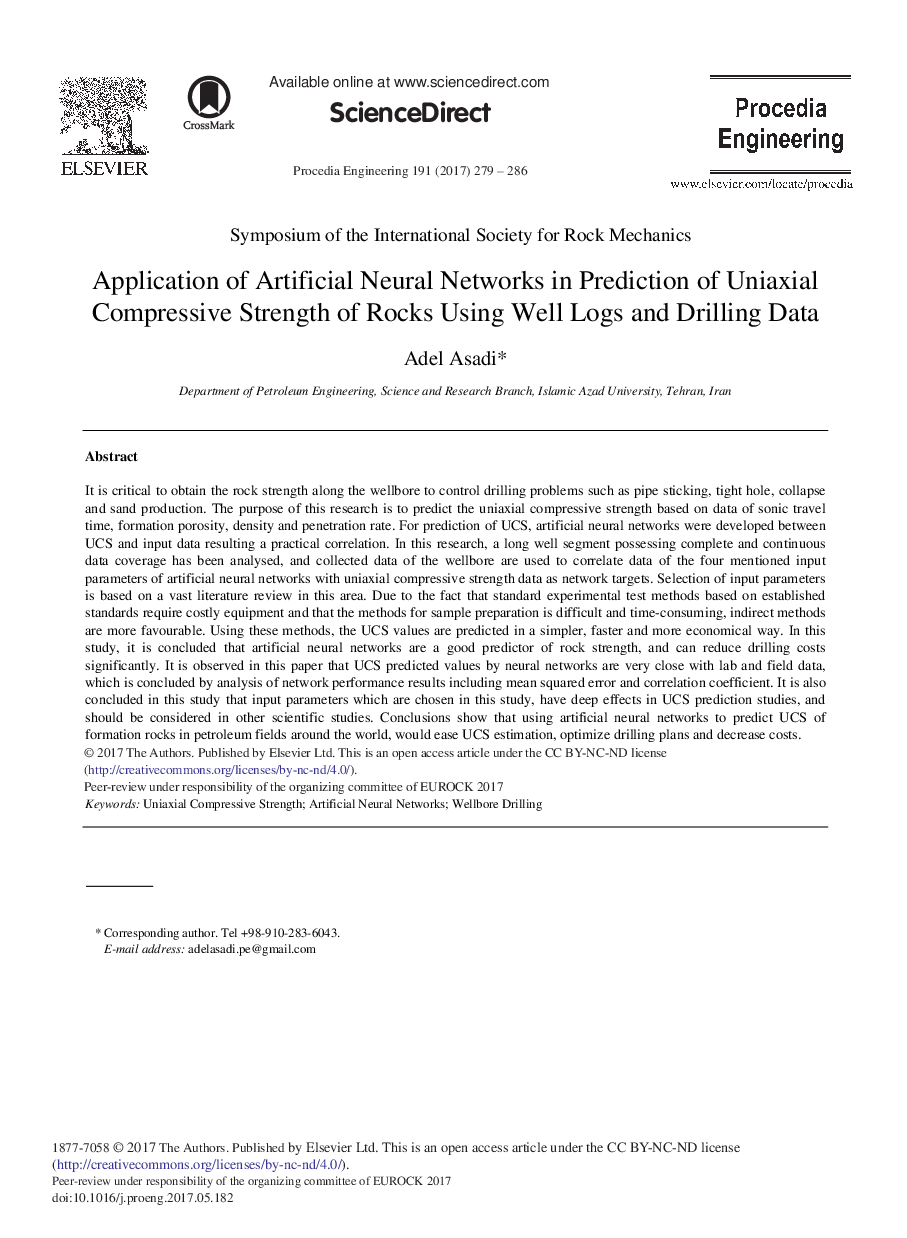| کد مقاله | کد نشریه | سال انتشار | مقاله انگلیسی | نسخه تمام متن |
|---|---|---|---|---|
| 5027508 | 1470635 | 2017 | 8 صفحه PDF | دانلود رایگان |
عنوان انگلیسی مقاله ISI
Application of Artificial Neural Networks in Prediction of Uniaxial Compressive Strength of Rocks using Well Logs and Drilling Data
ترجمه فارسی عنوان
استفاده از شبکه های عصبی مصنوعی در پیش بینی قدرت فشرده سازی یاتاقانهای سنگها با استفاده از داده های حفاری خالص
دانلود مقاله + سفارش ترجمه
دانلود مقاله ISI انگلیسی
رایگان برای ایرانیان
کلمات کلیدی
قدرت فشاری یک طرفه، شبکه عصبی مصنوعی، حفاری چاه،
موضوعات مرتبط
مهندسی و علوم پایه
سایر رشته های مهندسی
مهندسی (عمومی)
چکیده انگلیسی
It is critical to obtain the rock strength along the wellbore to control drilling problems such as pipe sticking, tight hole, collapse and sand production. The purpose of this research is to predict the uniaxial compressive strength based on data of sonic travel time, formation porosity, density and penetration rate. For prediction of UCS, artificial neural networks were developed between UCS and input data resulting a practical correlation. In this research, a long well segment possessing complete and continuous data coverage has been analysed, and collected data of the wellbore are used to correlate data of the four mentioned input parameters of artificial neural networks with uniaxial compressive strength data as network targets. Selection of input parameters is based on a vast literature review in this area. Due to the fact that standard experimental test methods based on established standards require costly equipment and that the methods for sample preparation is difficult and time-consuming, indirect methods are more favourable. Using these methods, the UCS values are predicted in a simpler, faster and more economical way. In this study, it is concluded that artificial neural networks are a good predictor of rock strength, and can reduce drilling costs significantly. It is observed in this paper that UCS predicted values by neural networks are very close with lab and field data, which is concluded by analysis of network performance results including mean squared error and correlation coefficient. It is also concluded in this study that input parameters which are chosen in this study, have deep effects in UCS prediction studies, and should be considered in other scientific studies. Conclusions show that using artificial neural networks to predict UCS of formation rocks in petroleum fields around the world, would ease UCS estimation, optimize drilling plans and decrease costs.
ناشر
Database: Elsevier - ScienceDirect (ساینس دایرکت)
Journal: Procedia Engineering - Volume 191, 2017, Pages 279-286
Journal: Procedia Engineering - Volume 191, 2017, Pages 279-286
نویسندگان
Adel Asadi,
